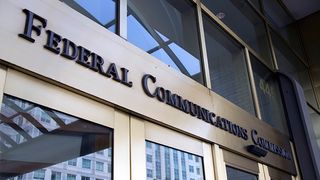INCOMPAS: ISPs Are Gatekeepers in Need of Title II Oversight

INCOMPAS—which comprises competitive carriers, tech companies and edge providers—has warned the FCC against rolling back Title II.
That came in its two cents (actually 100 pages worth) on the FCC's proposal to reverse the Title II common carrier classification of internet access and potentially rework or undo the 2015 Open Internet order's net neutrality rules.
INCOMPAS argues that ISPs are the gatekeeper the previous FCC chairman, Tom Wheeler, insisted they were. It says they uniquely have the ability and incentive to harm competition and consumers by virtue of that gatekeeper status, and that unfairly disadvantaging unaffiliated edge providers is a problem that requires fixing.
INCOMPAS cited limited competition and interconnection issues and talked of barriers to competitive entry that are "large and enduring."
Cable ISP service was born, and borne, on the back of a traditional video business model that was built on exclusive franchises and scaling up by trading systems to achieve geographic synergies rather than overbuilding, given the expense of duplicating plant.
It says that the FCC's current position that internet access is not a telecommunications service is contrary to fact and law and cannot be justified.
INCOMPAS also argues that without Title II, the FCC cannot impose the bright-line rules against blocking, throttling or paid prioritization.
Broadcasting & Cable Newsletter
The smarter way to stay on top of broadcasting and cable industry. Sign up below
And while ISPs say that Title II has depressed infrastructure investment, INCOMPAS says it has not sufficiently shown that. "To properly perform a CBA, the Commission must consider the costs of decreased levels of investment from edge providers as they deal with broadband providers that can use their gatekeeper power to either extract fees from the edge providers or restrict their access to customers."
Contributing editor John Eggerton has been an editor and/or writer on media regulation, legislation and policy for over four decades, including covering the FCC, FTC, Congress, the major media trade associations, and the federal courts. In addition to Multichannel News and Broadcasting + Cable, his work has appeared in Radio World, TV Technology, TV Fax, This Week in Consumer Electronics, Variety and the Encyclopedia Britannica.

